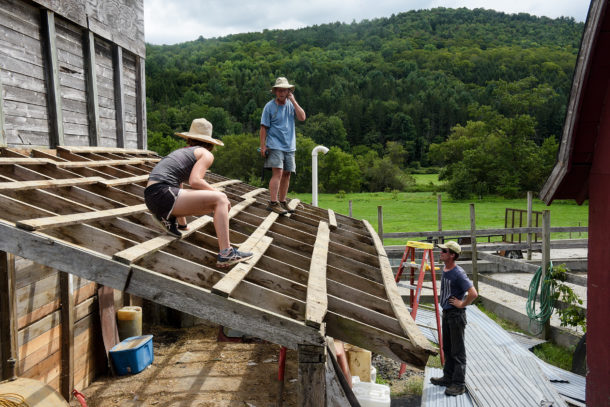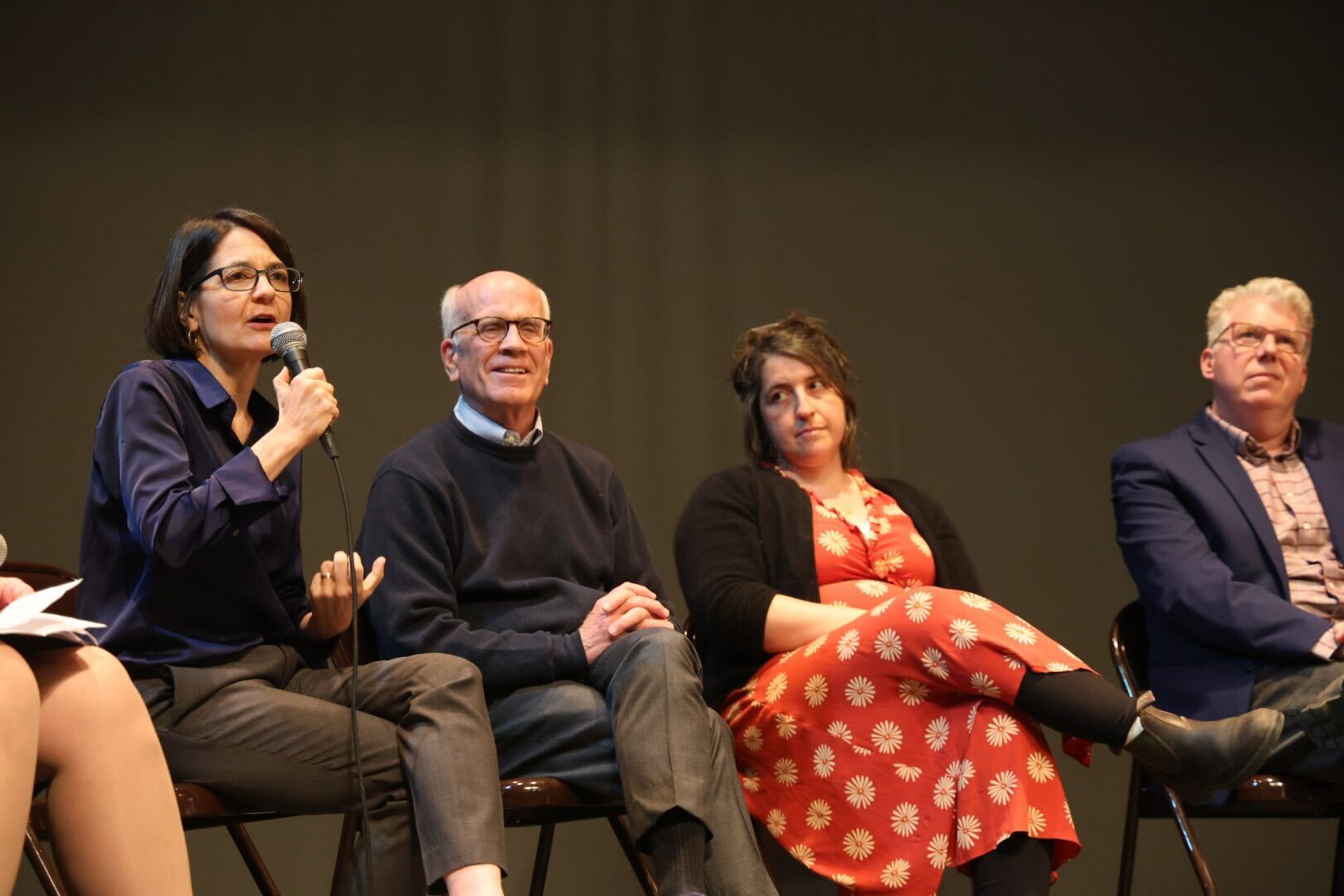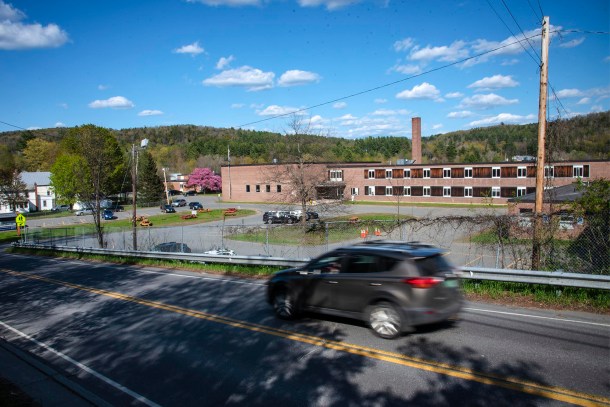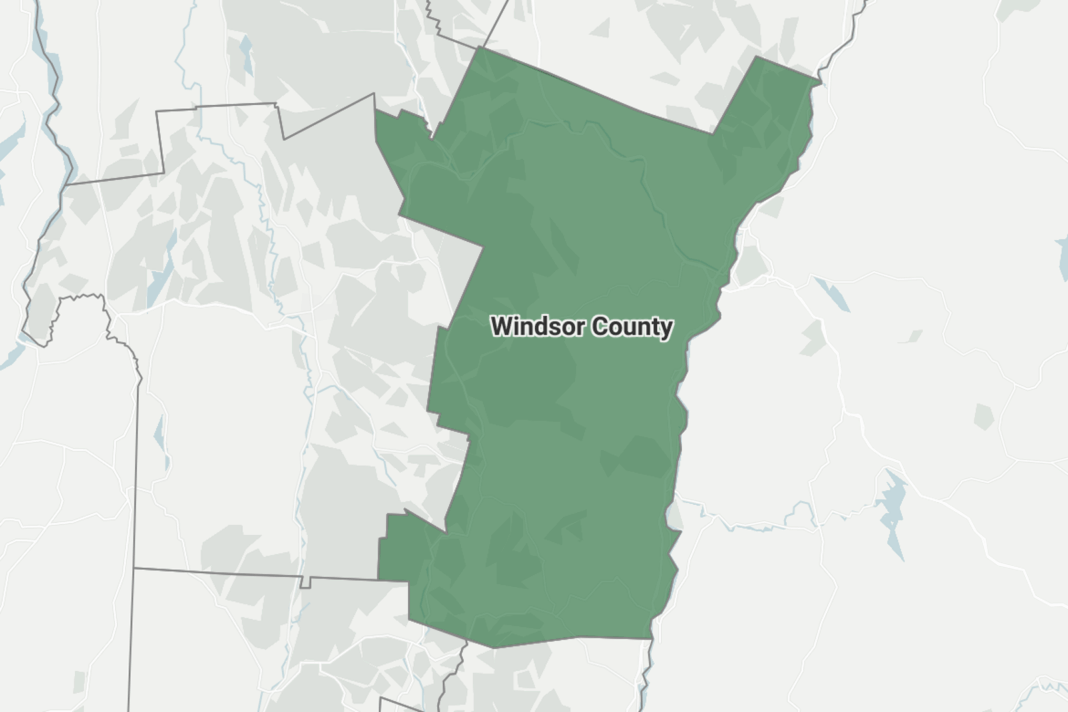## From Front Porch to Prison Cell: A Vermont Business Owner’s Fall From Grace The quaint charm of Ludlow, Vermont, is known for its vibrant community and picturesque landscapes. But behind the idyllic facade, a story of betrayal and legal repercussions is unfolding. A prominent local business owner, once a respected figure in town, is now facing 20 months behind bars in a federal prison. What led to this dramatic downfall? VTDigger investigates the story behind the conviction, exploring the complex web of deceit and the heavy price being paid by one man who lost his way.
The Importance of Local Journalism

By Dan Cotter, publisher
Labor Day is coming up, signaling a time of year that’s taken on new meaning for the Vermont Standard and the Woodstock Region Journalism Foundation. This point in the calendar when we honor our nation’s workers is also when we begin our four-week Annual Appeal to raise funds to keep quality local journalism flowing for Woodstock and the surrounding towns that the Standard serves in Windsor County.
By now, most everyone knows that newspapers have been struggling mightily – despite the fact that communities throughout the nation still count on them to employ the journalists who are primarily responsible for covering local news.
The main problem has been the evaporation of much of the advertising revenue that traditionally supported local journalism. Those who advertised in newspapers through the years were typically smaller, local businesses, which in many cases have fallen prey to competition from chains, big box stores, and online sellers (like Amazon). Many of them have now been bought up by bigger regional or national operations or they closed down.
Classified section advertisers also pulled back on the ads they ran in newspapers for jobs, cars, real estate, and used merchandise when online options, which are often free, became available. So, this left local newsrooms all across the country without much of a funding mechanism.
Many sold out to national newspaper chains owned by corporations or hedge funds that proceeded to gut the paper’s staff and resources in a cynical attempt to squeeze out what little might be left. Other papers just closed their doors as their financial losses piled up.
So far, the country has lost about a third of its newspapers — almost 3,000 have gone out of business in the past twenty years, and we’re currently on pace to continue losing more than two per week. More than 200 counties now have no credible, comprehensive local news source. They call those places “news deserts.”

The Struggle of Local Newspapers and the Rise of News Deserts
To make matters worse, while many other communities still have a local newspaper, it has been reduced to just a shadow of its former self because corporate scavengers “right-sized” it, leaving the paper incapable of performing its duty for its community.
However, there are still some independent publishers in small communities like ours who know that we cannot have a well-functioning democracy if the public isn’t adequately informed. They know that a local newspaper is entrusted with reporting about the issues that matter.
They also know that communities function better — and the quality of life is better — if people know what’s going on and if they know and appreciate each other.
So, those publishers are finding ways to keep the lights on at their newspaper any way they can, while at the same time attempting to create new revenue streams that could help sustain their local journalism in the future.
The Standard is one of those newspapers.
Last year, the Woodstock Region Journalism Foundation was formed as a public charity to raise funds to help ensure that our community won’t become the next news desert.
The Foundation is dedicated primarily to preserving the Standard and its role in informing citizens and supporting democracy in our area well into the future.
We’re not trying to merely keep some semblance of a diminished newspaper alive here. We’re trying to preserve a good, trustworthy, 171-year-old purveyor of local news and information (both in print and digital formats) that our community can continue to rely upon and be proud of.
We believe that having fair-minded, professionally produced local journalism is extremely important to maintaining the quality of life here.
And we are not alone in this effort.
There are still businesses here that help pay for your local journalism with their advertising in the Standard and its ancillary publications.
Any business or organization that advertises is doing more than just promoting a service, sale, or event – it is also showing you that it cares about the community and wants to contribute to its well-being.
A New Generation of Farmers
From Childhood Dreams to Reality: Starting a Farm in Vermont

This summer, Sophie and Evan Roe’s butter will finally be ready for sale.
Craig Wortman talks to a bull during a rest after working at the farm in South Randolph, Vt., on Friday, July 9, 2021. After a lifetime of physical labor, Wortman has needed shoulder surgery and a knee replacement.
Sophie Roe’s custom-made creamery arrived on an icy February morning. The retrofitted red shipping container came equipped with a separator, a pasteurizer, a churn — everything she needed to make butter. Most importantly, it met all state and federal regulations.
A crane lifted it 30 feet into the air and then rested it gently between a weathered red barn and a ramshackle sawdust shed at Green Acres Farm. It shone as bright as a child’s new toy.
Roe, 22, showed her excitement physically. She jumped, she laughed, she oohed and aahed. Strands of her reddish-blonde hair fell out from under her Carhartt hat as she smiled at the creamery. It had been on its way for over nine months. She daydreamed out loud, imagining how she would churn butter in front of the small window that framed a perfect square of pasture and mountains.
Sophie and her brother, Evan, have worked with animals since they were children, but they only had the idea of starting their own farm in May 2020. The creamery gave solidity to their dream.
Evan, 27, tall and lean, keeps his emotions muted and his words few. But he allowed himself a smile as he fastened a key to the new creamery onto his heavy keychain.
John, their father, took pictures and videos with the enthusiasm of any parent watching his children take on a big project. But he also fretted over the details, like how well the creamery’s floor would drain and how it sat on the foundation he had helped prepare.
Watching two of your children take on the risks of the dairy industry can be nerve-wracking.
Evan and Sophie’s plan began with a happy accident. In 2020, Evan asked Joan and Craig Wortman, who own the 90-acre farm in Randolph, for help when he needed to move some of the cows that he and his sister had collected over the years. He discovered that Green Acres was for sale.
Although the rolling, rocky land would not grow much feed, it had all the fixings, both practical and aesthetic, of a small Vermont dairy farm: upper and lower pastures for grazing; a new manure pit; a brook rambling down from a hillside spring; a well-maintained red milking barn; and a big white farmhouse.
Sophie and Evan know the risks of dairy farming. Evan, a graduate and employee of Vermont Technical College, saw the school’s dairy department shrink to two students. In May, VTC sold its dairy herd and paused admissions to its agriculture programs. Evan still helps manage the remaining heifers.
Evan, a graduate and employee of Vermont Technical College, saw the school’s dairy department shrink to two students. In May, VTC sold its dairy herd and paused admissions to its agriculture programs. Evan still helps manage the remaining heifers.
Evan, a graduate and employee of Vermont Technical College, saw the school’s dairy department shrink to two students. In May, VTC sold its dairy herd and paused admissions to its agriculture programs. Evan still helps manage the remaining heifers.
He already tried building a farm with a professor at VTC, but their effort failed. Still, he is determined to have his own farm.
Neither Sophie nor Evan expects to give up their other jobs soon. But they also hope that butter — a niche, value-added product — will make Green Acres a sign of hope amid the decades-long decline of traditional dairy in Vermont.
Sick animals, labyrinthine loan applications, delayed equipment and state inspections have slowed Green Acres Farm’s transition from the Wortmans to the Roes. Finally, though, Sophie and Evan are ready to sell their butter at local markets, and Joan and Craig Wortman have been willing to wait.
“We’ll do whatever we can do to have this still wind up a little farm,” Joan said. “That’s what Vermont is — small family farms.”
Conclusion

The story of [business owner’s name] serves as a stark reminder that even in the seemingly idyllic landscapes of Vermont, the pursuit of personal gain can have devastating consequences. Their conviction for [briefly state the crime] highlights the vulnerability of our communities to exploitation and underscores the critical role of ethical business practices. The 20-month prison sentence, while a necessary legal consequence, leaves a void in the Ludlow community, raising questions about the future of their business and the impact on local livelihoods.

This case also compels us to reflect on the systemic issues that may have contributed to this situation. Are there sufficient safeguards in place to prevent similar instances of abuse? How can we empower individuals and businesses to operate with integrity and transparency? These are questions that demand our attention, as we strive to build a more just and equitable society. The future of Ludlow, and indeed of Vermont, hinges on our collective commitment to upholding ethical standards and ensuring that the pursuit of profit never comes at the expense of our shared values.

